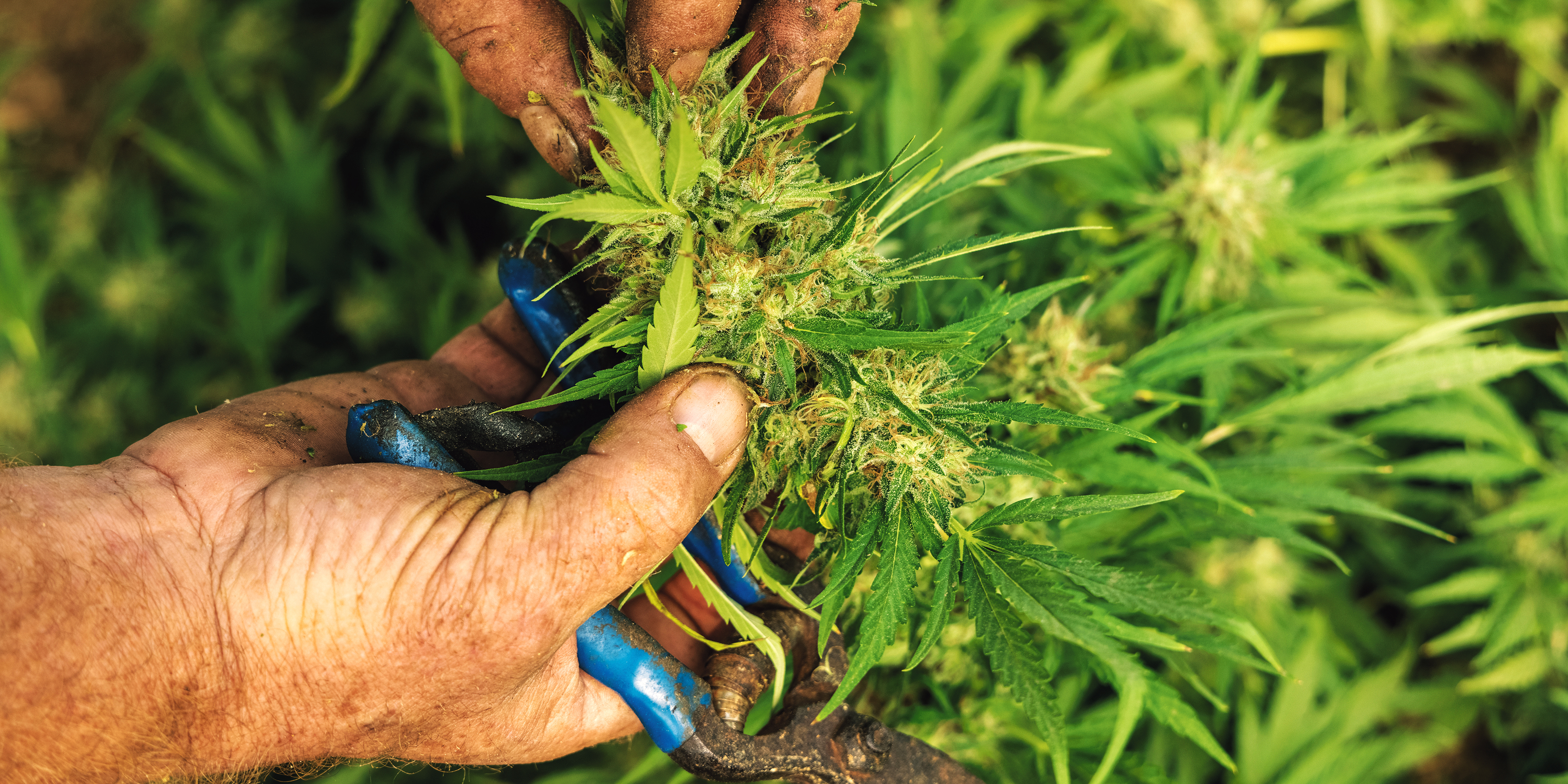Drawing on his own struggle with drug addiction, Nelson Mandela University researcher Musa Aminu is studying cannabis use disorder, and why what may be good for some is not good for everyone.
Cannabis use disorder is defined as a psychiatric disorder in the fifth revision of the Diagnostic and Statistical Manual of Mental Disorders and ICD-10 as the continued use of cannabis despite clinically significant impairment. (ICD-10 is the 10th revision of the International Statistical Classification of Diseases and Related Health Problems, a medical classification list by the World Health Organization.)
Aminu is a second-year PhD student in the department of human physiology at Nelson Mandela University. He was selected to participate in the prestigious Shango Fellowship, which nurtures emerging thought leaders from Africa and focuses on decolonising African research and medicine development.
Personal struggle
His calling to do this work springs from his own intense personal struggle with drugs.
“I have spent the last 14 years getting comfortable with my story,” he said. “Life is like a rainbow. What works for one person to treat glaucoma, as an example, may not be appropriate for someone who is more vulnerable to cannabis use disorder.
“That is the side that I want to tell. The side of those who develop a problem.”
He says he started using cigarettes and alcohol, and then moved to cannabis.
“Cannabis made me more comfortable to take other drugs, mostly opioids.”
His drug use led to him struggling to focus at school and impaired his memory.
“One of the issues is that it impaired my memory for a long while, even after I became sober, and for my whole first degree I struggled with this. Fortunately, my memory has since been restored,” he said.
“I gave up using because I got to a point where I felt my life was worth more than just taking drugs. I am fortunate that I grew up in a family with very high values, as I would have battled to give up without their support. I have now been drug free for 14 years, and I am dedicated to helping other people with similar struggles.
“I have seen so many people in African countries come down with cannabis use disorder, including in South Africa.”
His research is being supervised by Dr Duyilemi Chris Ajonijebu from Nelson Mandela University and co-supervised by Professor William Daniels from Wits University.
“I am looking at the cellular and molecular processes of cannabis use, especially in people who suffer from depression and anxiety or have a history of mental illness, as they are more susceptible to coming down with cannabis use disorder,” Aminu said.
Legalisation
He said that although there was euphoria about the legalisation of cannabis and its economic benefits, and while it had become fashionable to harness medical marijuana as a treatment, the science was not yet advanced enough to explain when people would be vulnerable to cannabis use disorder.
“Through my PhD I want to lend my voice to amplify the conversation about the harmful effects of cannabis,” he said, adding that he would like his academic work to lead to the improvement of policies and healthcare.
Cannabis is fast becoming the most widely used legal drug in the world. In the US, it has surpassed alcohol.
“So if you say one out of 10 people using cannabis will come down with a problem, these numbers tell us that more and more people will develop cannabis use disorder,” he said. “But healthcare has not kept up the same pace.”
 PhD researcher in cannabis use disorder Musa Aminu. (Photo: Supplied)
PhD researcher in cannabis use disorder Musa Aminu. (Photo: Supplied)
He added that in future he wanted to partner with community-based initiatives to develop prevention programmes.
“It is a genetic issue,” he said. “All drugs that are psychoactive hold the potential to become addictive.”
But, he explained, it was vital to understand who would be vulnerable to polydrug use that was triggered by cannabis.
His research aims to understand how these disorders affect each other and to delineate the pathways of the condition in the brain, then to use the knowledge to come up with treatments.
His work will also add some much-needed research as there is a scarcity of data on the effects of cannabis on populations in Africa.
Read more in Daily Maverick: How shttps://www.dailymaverick.co.za/article/2024-06-11-how-safe-is-cbd-for-chronic-pain/afe is CBD for chronic pain?
“We need to build up this body of research, and at the same time we need to be careful about the type of policies we adopt, as most of the research and data we reference is coming from outside of Africa,” he said.
Ajonijebu, a behavioural neuroscientist, said conclusions could not yet be drawn because Aminu was still in the early stages of the research, but what they did know was that one of the dopamine pathways in the brain becomes impaired after prolonged exposure to cannabis and other drugs.
This leads to people needing more drugs to get the same “high”.
“What we have also found is that some of the brain pathways (in cannabis use disorder) are similar to those in depression and anxiety and can become so imprinted in one’s genes at the cellular level that it becomes transferable across generations,” Aminu said.
“What this means is one’s offspring may also inherit the tendency to come down with the same syndromes.” DM
Daily Maverick’s journalism is funded by the contributions of our Maverick Insider members. If you appreciate our work, then join our membership community. Defending Democracy is an everyday effort. Be part of it. Become a Maverick Insider.
This story first appeared in our weekly Daily Maverick 168 newspaper, which is available countrywide for R35.





 PhD researcher in cannabis use disorder Musa Aminu. (Photo: Supplied)
PhD researcher in cannabis use disorder Musa Aminu. (Photo: Supplied)